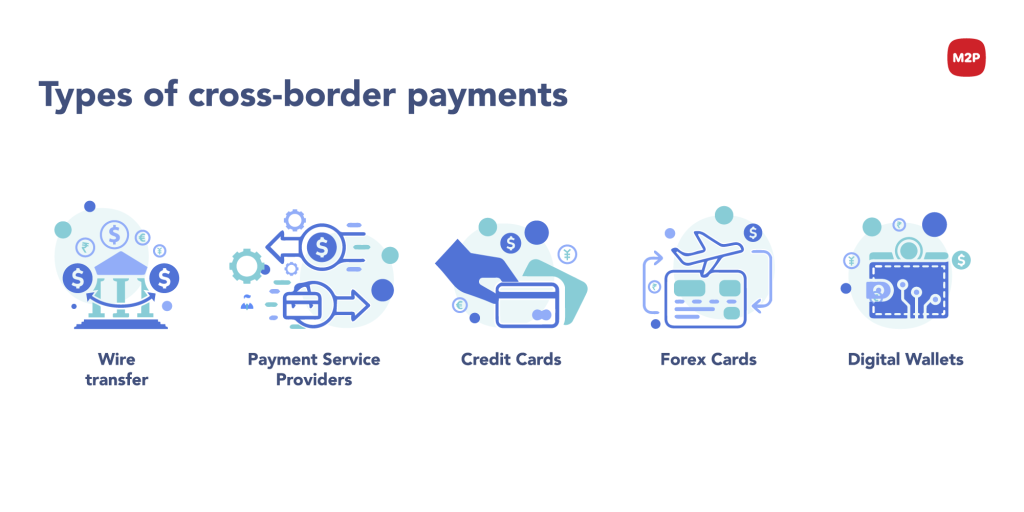AUTHOR : SAYYED NUZAT
DATE : MAY 16, 2024
In recent years, the world has witnessed a significant rise in the adoption of cryptocurrencies, and India is no exception to this trend. As digital currencies continue to gain momentum globally, the concept of cross-border crypto payments has emerged as a promising solution for individuals and businesses looking to transfer funds across borders efficiently and securely.
The Rise of Cryptocurrencies in India
India, with its large population and rapidly growing digital economy[1], has become a hotbed for cryptocurrency adoption. Despite initial skepticism from regulators and traditional financial institutions[2], cryptocurrencies like Bitcoin, Ethereum[3], and Ripple have gained popularity among Indian investors and traders. Consequently, their growing adoption reflects a significant shift in the financial landscape.[4]

Challenges of Cross-border Payments in India
Regulatory Uncertainty
One of the primary challenges[5] hindering the widespread adoption of cross-border crypto payments in India is regulatory uncertainty. The Indian government has expressed concerns about the use of cryptocurrencies for illicit activities and has been cautious in formulating regulations governing their use.
Lack of Infrastructure
Another challenge is the lack of robust infrastructure to support cross-border cryptographic transactions. While the crypto ecosystem is expanding rapidly, many traditional financial institutions in India have yet to integrate cryptocurrencies into their systems.
Exchange Rate Fluctuations
Exchange rate fluctuations pose a risk for cross-border transactions, especially when dealing with volatile cryptocurrencies. Traders and businesses must account for these fluctuations to mitigate potential losses during transfers.
Benefits of Cross-border Crypto Payments
Cost-efficiency
Cross-border crypto payments offer significant cost savings compared to traditional banking methods. Therefore, they present an appealing alternative for international transactions. With lower transaction fees and no intermediaries, individuals and businesses can transfer funds across borders at a fraction of the cost.
Speed
Cryptocurrency transactions boast swift processing speeds, far outpacing the sluggish pace of traditional bank transfers that often stretch out over multiple days before completion Cross-border crypto payments enable near-instantaneous transfer of funds, allowing for quicker settlement of transactions.
Security
Blockchain technology, the underlying technology behind cryptocurrencies, provides a high level of security for cross-border transactions. The decentralized nature of blockchain ensures that transactions are transparent, immutable, and resistant to fraud.
How Cross-border Crypto Payments Work
Cross-border crypto payments involve the transfer of digital assets from one party to another across international borders. These transactions typically occur through peer-to-peer networks, where users can send and receive cryptocurrencies directly without the need for intermediaries.
Popular Cryptocurrencies for Cross-border Payments

Bitcoin
Bitcoin, the first and most well-known cryptocurrency, is widely used for cross-border payments due to its widespread acceptance and liquidity. Moreover, its established reputation enhances its attractiveness for international transactions.

Ethereum
Ethereum, known for its smart contract capabilities, is also popular for cross-border transactions, particularly in the realm of decentralized finance (DeFi).

Ripple
Ripple’s XRP cryptocurrency and its associated payment protocol are designed specifically for cross-border payments, offering fast and low-cost transactions.
Adoption and Acceptance in India
Despite regulatory challenges, the adoption of cryptocurrencies for cross-border payments is gradually gaining traction in India. Several Indian startups and fintech companies are working towards developing solutions to facilitate seamless crypto transactions across borders.
Regulations Surrounding Cross-border Crypto Payments
The regulatory landscape surrounding cross-border crypto payments in India remains uncertain. While the Indian government has hinted at introducing regulations to govern the use of cryptocurrencies, concrete policies are yet to be implemented.
Future Outlook
As India’s digital economy continues to evolve, the demand for efficient cross-border payment solutions is expected to grow. With advancements in blockchain technology and increasing acceptance of cryptocurrencies, cross-border crypto payments have the potential to revolutionize the way funds are transferred internationally.
Conclusion
Cross-border crypto payments hold immense potential to streamline international transactions, offering benefits such as cost-efficiency, speed, and security. While challenges such as regulatory uncertainty persist, the growing adoption of cryptocurrencies in India indicates a promising future for cross-border payments in the digital age.
FAQs
- Are cross-border crypto payments legal in India?
- As of now, the legality of cross-border crypto payments in India remains unclear due to regulatory uncertainty.
- Which cryptocurrencies are commonly used for cross-border payments?
- Bitcoin, Ethereum, and Ripple are among the most commonly used cryptocurrencies for cross-border transactions.
- How long does it take to process a cross-border crypto payment?
- Cryptocurrency transactions typically process much faster than traditional bank transfers, often completing within minutes.
- Are cross-border cryptographic payments secure?
- Yes, blockchain technology secures cross-border crypto payments, providing transparency, immutability, and resistance to fraud.
- What are the advantages of using cross-border crypto payments?
- Cross-border crypto payments offer benefits such as cost-efficiency, speed, and security compared to traditional banking methods.



